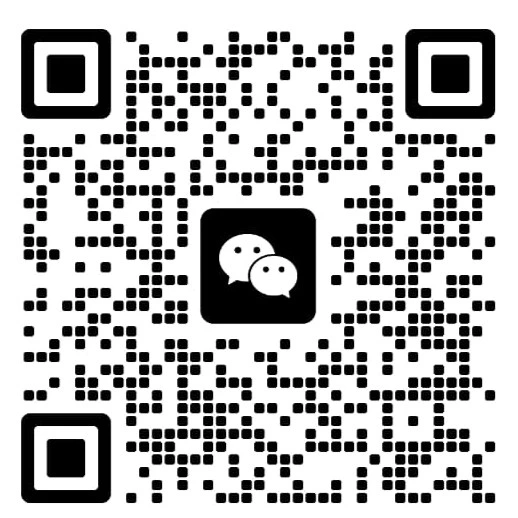The Indonesian food supplement market is booming, driven by increasing health awareness, a growing middle class, and a population that values safety, purity, and ethical production. Indonesia presents a rapidly expanding market for international nutraceutical and supplement companies, though it necessitates rigorous adherence to regulations.
Under Indonesia’s Halal Product Assurance Law (Law No. 33/2014), food, beverages, pharmaceuticals, cosmetics, and food supplements are required to obtain Halal certification before entering the market. For foreign manufacturers, understanding and fulfilling the requirements of halal certification for food supplements in Indonesia is not only a regulatory step but a powerful market differentiator.
This complete guide explains the regulatory framework, process, documentation, and best practices to help supplement producers worldwide navigate the Halal certification system and gain market access smoothly.
Indonesia’s Halal Regulatory Framework for Food Supplements
The Indonesian Halal certification system operates under a multi-agency structure combining religious, technical, and administrative oversight.
Legal Basis of Halal Food Supplements in Indonesia
Halal certification in Indonesia is mandated by:
- Law No. 33/2014 on Halal Product Assurance (UU JPH)
- Government Regulation No. 39/2021
These regulations establish that all products circulating in Indonesia must be Halal-certified or explicitly labeled non-Halal.
Key Authorities Who Manage Halal Certification for Food Supplements
- BPJPH (Badan Penyelenggara Jaminan Produk Halal) – The Halal certification authority under the Ministry of Religious Affairs. BPJPH manages applications, approves inspection bodies, and issues Halal certificates.
- LPH (Lembaga Pemeriksa Halal) – Accredited Halal Inspection Bodies that perform on-site or remote audits.
- MUI (Indonesian Ulema Council) – Provides final religious rulings (fatwa) for complex product cases.
- BPOM (National Agency for Food and Drug Control) – Regulates food safety, labeling, and product claims.
To sell in Indonesia, supplements must comply with both BPOM safety regulations and BPJPH Halal certification requirements. These two approvals operate in parallel but often overlap in documentation.
Why Halal Certification Matters for Nutraceutical and Supplement Companies?
For global supplement manufacturers, obtaining Halal certification is more than regulatory compliance, but it’s a strategic business move.
1. Regulatory Obligation
Starting in 2026, all food supplements distributed in Indonesia will require Halal certification. Non-certified products may face restrictions, labeling warnings, or removal from retail listings.
2. Access to the World’s Largest Muslim Market
With over 230 million Muslim consumers, Indonesia represents the single largest Halal supplement market in the world. Halal certification is a prerequisite for product acceptance across retail, pharmacy, and e-commerce channels.
3. Consumer Confidence and Brand Integrity
Halal certification signifies that products meet standards for purity, ethical sourcing, and safety. These attributes are highly valued by health-conscious consumers.
4. Regional Export Recognition
Indonesia’s Halal certificate is recognized by several ASEAN and OIC member countries. Once approved locally, your product can often enter other Muslim-majority markets with simplified documentation.
5. Strategic Branding and ESG Alignment
In the global nutraceutical industry, Halal also aligns with “clean label” and sustainability trends by offering an ethical framework that reinforces Environmental, Social, and Governance (ESG) positioning.
Which Food Supplements Require Halal Certification?
Halal certification applies broadly to all products consumed orally, particularly those with potential contact with animal-derived materials.
Categories requiring certification:
- Capsules and Softgels: often use gelatin from animal sources.
- Powdered Vitamins and Protein Blends: may include emulsifiers or flavoring agents from uncertain origins.
- Enzyme-Based or Probiotic Supplements: sometimes produced using animal-derived culture media.
- Herbal Extracts and Nutraceuticals: solvents and carriers (e.g., ethanol, glycerin) must be verified as Halal-compliant.
Categories generally exempted:
- Supplements made entirely from synthetic or mineral-based ingredients.
- Formulations without any risk of animal-derived inputs.
To confirm exemption, BPJPH requires a formal declaration of composition and verification by a Halal auditor.
Halal Certification for Food Supplements Guidance
Step 1: Material Screening & Classification
The process begins with an audit of every ingredient in the formula, including active and inactive components. Manufacturers must:
- Identify ingredient sources (plant, mineral, synthetic, or animal).
- Request Halal declarations or certificates from suppliers.
- Replace non-Halal ingredients (e.g., pig-derived gelatin, porcine enzymes) with Halal-certified alternatives.
This step is often the most time-consuming, especially for complex formulations with multiple excipients or coatings.
Step 2: Documentation & Dossier Preparation
After confirming ingredient compliance, manufacturers must prepare a Halal dossier according to BPJPH’s requirements. Key components include:
- Halal Assurance System (HAS 23000) Manual – outlines internal Halal procedures and control points.
- Detailed Product Formulation & Process Flow Diagram.
- Letter of Authorization (LoA) – appointing a local representative in Indonesia.
- Certificate of Free Sale (CFS) – legalized by the Indonesian Embassy.
- GMP/ISO 22000 Certificate – proving manufacturing quality and hygiene standards.
- Ingredient Source Statements – supplier documents verifying Halal origin.
- Product Labels and Packaging (in Bahasa Indonesia).
Translation into Bahasa Indonesia is mandatory. Inconsistent documents or missing legalizations are the most common causes of delay.
Step 3: Online Submission via the SiHalal Portal
Manufacturers or their Indonesian representatives must submit applications through SiHalal, BPJPH’s digital platform. The online system requires:
- Company registration.
- Uploading all supporting documents.
- Payment of government fees (PNBP).
After submission, BPJPH appoints an LPH (Halal Inspection Body) to conduct an audit.
Step 4: Halal Audit by LPH
The audit verifies the manufacturer’s compliance with Halal production standards.
- On-Site or Virtual Audit: LPH inspectors review raw materials, production processes, sanitation, and packaging.
- Critical Control Points: focus on equipment contamination and gelatin/solvent sourcing.
- Audit Results: are submitted to BPJPH for certification review.
Overseas manufacturers can undergo virtual audits. However, PRI generally recommends coordinating these with a local representative to facilitate clear communication and address any questions effectively.
Step 5: BPJPH Approval and Certificate Issuance
If all documents and audit findings are satisfactory, BPJPH issues the official Halal Certificate, valid for four years. Manufacturers must then:
- Display the Halal logo clearly on all product packaging and marketing materials.
- Ensure distribution partners maintain product integrity during shipping and storage.
Step 6: Post-Certification Maintenance
Maintaining Halal certification requires ongoing diligence:
- Annual Internal Audits: to verify ongoing compliance.
- Notification to BPJPH: if any ingredient, supplier, or process changes.
- Certificate Renewal: before expiry every four years.
- Halal Assurance System Review: updates to manuals or records must be documented and revalidated.
We provide a Halal Licensing and Compliance Monitoring service that manages renewals, reporting, and updates on behalf of international manufacturers.
Key Documents Required for Halal Certification of Food Supplements
Below is a summary checklist of required documentation for Halal approval:
| Document | Purpose | Prepared By |
| Letter of Authorization (LoA) | Appoints local representative | Manufacturer |
| Certificate of Free Sale (CFS) | Verifies product legality in origin country | Manufacturer |
| GMP / ISO 22000 / HACCP | Demonstrates hygiene and process control | Manufacturer |
| Ingredient & Source List | Confirms Halal origin of active and inactive ingredients | R&D Dept |
| Product Label (Bahasa Indonesia) | Compliance with local labeling law | Manufacturer / Consultant |
| Halal Assurance System (HAS 23000) Manual | Describes Halal process management | QA Dept |
Even if products are certified Halal by other authorities (e.g., MUIS Singapore or JAKIM Malaysia), Indonesia requires local validation by BPJPH before market entry.
Maintaining Halal Compliance After Certification
Halal certification is a dynamic and evolving system that necessitates ongoing management and consistent monitoring.
Ongoing Obligations
- Internal Halal Audits: Conducted at least once a year to ensure ongoing compliance.
- Surveillance by LPH: Periodic inspections to confirm product consistency.
- Notification of Changes: Any alteration in supplier, formula, or packaging must be reported to BPJPH.
- Documentation Retention: Maintain full Halal records for at least five years.
A proactive compliance plan prevents renewal delays and ensures uninterrupted market access.
Common Challenges for Foreign Manufacturers
Foreign supplement exporters often underestimate the complexity of Halal certification in Indonesia. Below are the most common issues and solutions:
- Gelatin and Capsule Sources:
Most capsule shells are made from bovine or porcine gelatin. Only Halal-certified bovine gelatin (from Halal-slaughtered animals) is acceptable. - Traceability of Ingredients:
Minor additives like flavor enhancers or stabilizers, often come from blended supply chains. Missing documentation can trigger audit queries. - Translation and Legalization Barriers:
All documents must be translated into Bahasa Indonesia and legalized at the Indonesian Embassy. This process often causes the longest delays. - Overlapping Requirements Between BPOM and BPJPH:
Supplement registration requires both agencies’ approvals. PRI helps synchronize dossiers to avoid duplication. - Limited Local Representation:
Many foreign companies rely solely on distributors who may not have regulatory expertise. A neutral license holder (like PRI) provides independence and control.
Indonesia’s Halal certification system is transforming how nutraceutical and food supplement companies operate across Asia. What was once considered an optional certification has now become a market requirement and a symbol of global credibility.
To succeed in Indonesia, global manufacturers must be prepared. This involves meticulously tracing every ingredient, ensuring comprehensive documentation, and collaborating with reliable experts knowledgeable in both Halal and BPOM procedures.
Partner with us to obtain Halal Certification
Navigating halal nutraceutical approval in Indonesia can be challenging due to overlapping agencies, strict documentation, and language requirements. We provide an end-to-end solution designed specifically for food supplement product registration:
- Pre-assessment & Material Review: Identify non-compliant ingredients early.
- Dossier Preparation & Legalization: Compile, translate, and align documentation for BPJPH and BPOM.
- BPJPH Application & Audit Liaison: Coordinate directly with Halal inspection bodies.
- Ongoing Compliance Support: Manage renewals and Halal Assurance System updates.
Led by Dr. Hussein H. Mashhour, a regulatory and medical expert with more than 15 years of experience in Indonesia’s compliance landscape, PRI ensures that your food supplements enter Indonesia smoothly, ethically, and fully compliant.
📩 Contact Product Registration Indonesia today to start your Halal certification journey for food supplements—and secure your brand’s position in Southeast Asia’s fastest-growing health market.




